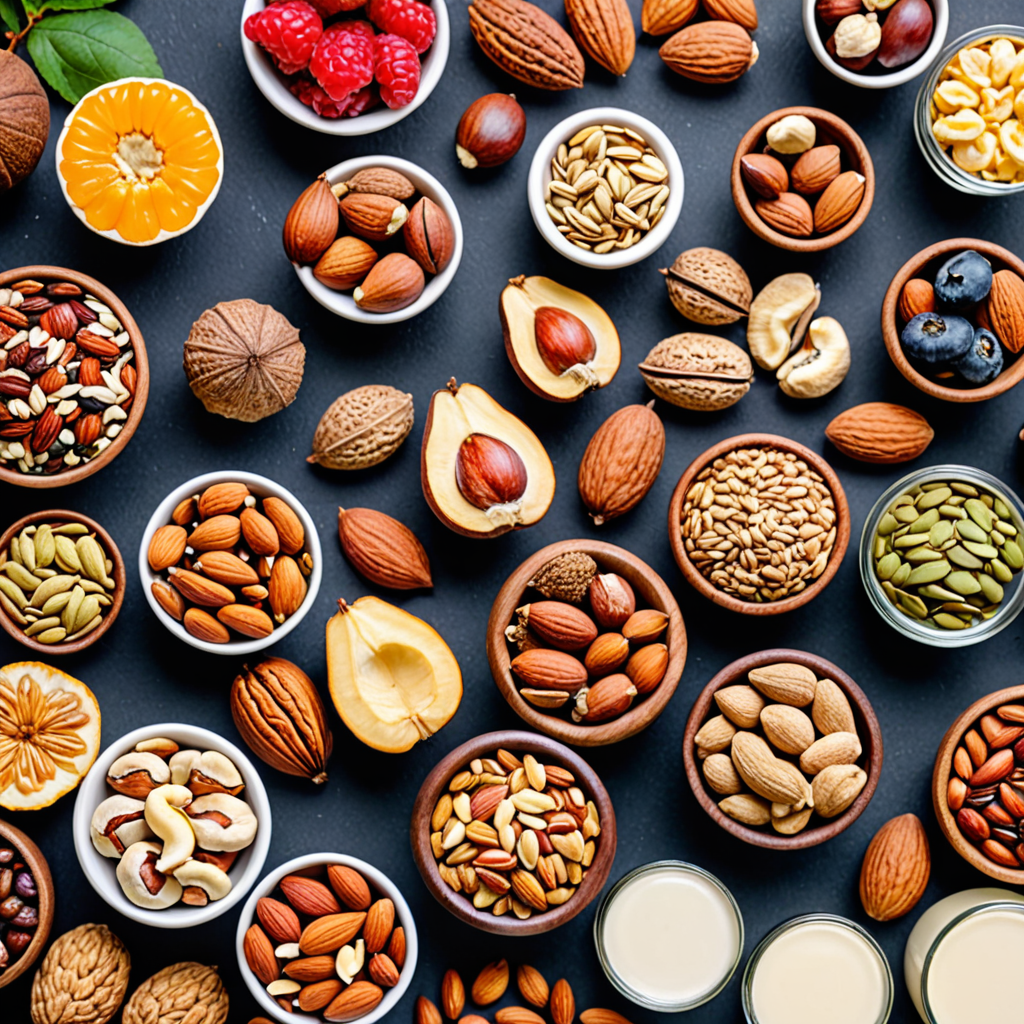
The Benefits of Including Nuts and Seeds in Your Diet
Introduction
Nuts and seeds are not only delicious but also offer a wide range of health benefits when included in your diet. These nutrient-dense foods are rich in healthy fats, proteins, fiber, vitamins, and minerals, making them an excellent addition to a balanced diet.
Heart Health
Consuming nuts and seeds is associated with a reduced risk of heart disease. They contain heart-healthy monounsaturated and polyunsaturated fats, which can help lower LDL (bad) cholesterol levels. Additionally, they are a good source of omega-3 fatty acids, which can help reduce inflammation and lower the risk of cardiovascular issues.
Weight Management
Despite their relatively high calorie content, nuts and seeds can actually support weight management. The combination of protein, fiber, and healthy fats helps keep you feeling full and satisfied, reducing the likelihood of overeating. Including nuts and seeds in your diet may even help with weight loss when consumed in moderation.
Brain Function
Nuts and seeds are packed with nutrients that are beneficial for brain health. They contain antioxidants, vitamin E, and essential minerals such as magnesium and zinc, all of which play a role in supporting cognitive function and reducing the risk of age-related cognitive decline.
Diabetes Management
Studies suggest that including nuts and seeds in your diet can help manage blood sugar levels and reduce the risk of developing type 2 diabetes. The fiber and healthy fats in nuts and seeds can slow down the absorption of sugars in the bloodstream, helping to regulate blood sugar levels.
Antioxidant Benefits
Nuts and seeds are rich in antioxidants, which help combat oxidative stress and reduce inflammation in the body. Antioxidants play a crucial role in protecting cells from damage caused by free radicals, which can contribute to various chronic diseases and aging.
Conclusion
Incorporating a variety of nuts and seeds into your diet can provide numerous health benefits, ranging from improved heart health and weight management to enhanced brain function and diabetes management. However, it’s essential to consume them in moderation due to their calorie density. Overall, including nuts and seeds in your diet can be a simple and delicious way to promote overall health and well-being.
FAQ About the Benefits of Nuts and Seeds in Your Diet
What are the health benefits of including nuts and seeds in your diet?
Nuts and seeds are nutrient-dense foods that offer various health benefits. They are rich in healthy fats, protein, fiber, vitamins, and minerals. Including them in your diet may help improve heart health, support weight management, and provide essential nutrients for overall well-being.
How do nuts and seeds support heart health?
Nuts and seeds contain unsaturated fats, such as omega-3 fatty acids, which are beneficial for heart health. They can help lower bad cholesterol levels, reduce the risk of blood clots, and support healthy blood pressure, thus reducing the risk of heart disease.
Can consuming nuts and seeds help with weight management?
Despite being high in calories, nuts and seeds can aid in weight management. Their combination of healthy fats, protein, and fiber helps promote feelings of fullness, preventing overeating. Additionally, their nutrient density makes them a satisfying and nourishing snack option.
What essential nutrients do nuts and seeds provide?
Nuts and seeds are rich sources of various essential nutrients, including magnesium, potassium, calcium, iron, and vitamin E. They also contain antioxidants and phytochemicals that offer numerous health benefits, such as reducing inflammation and enhancing immune function.


